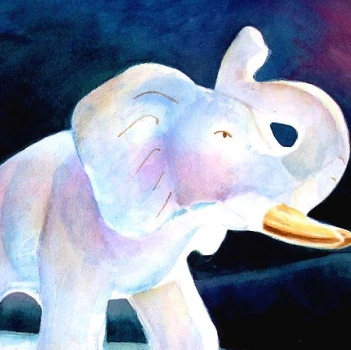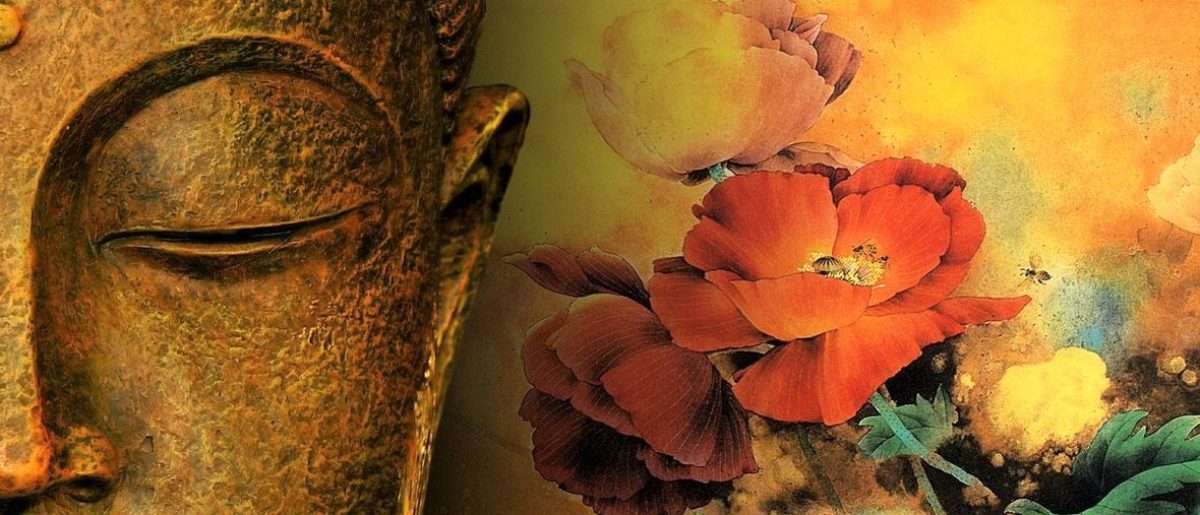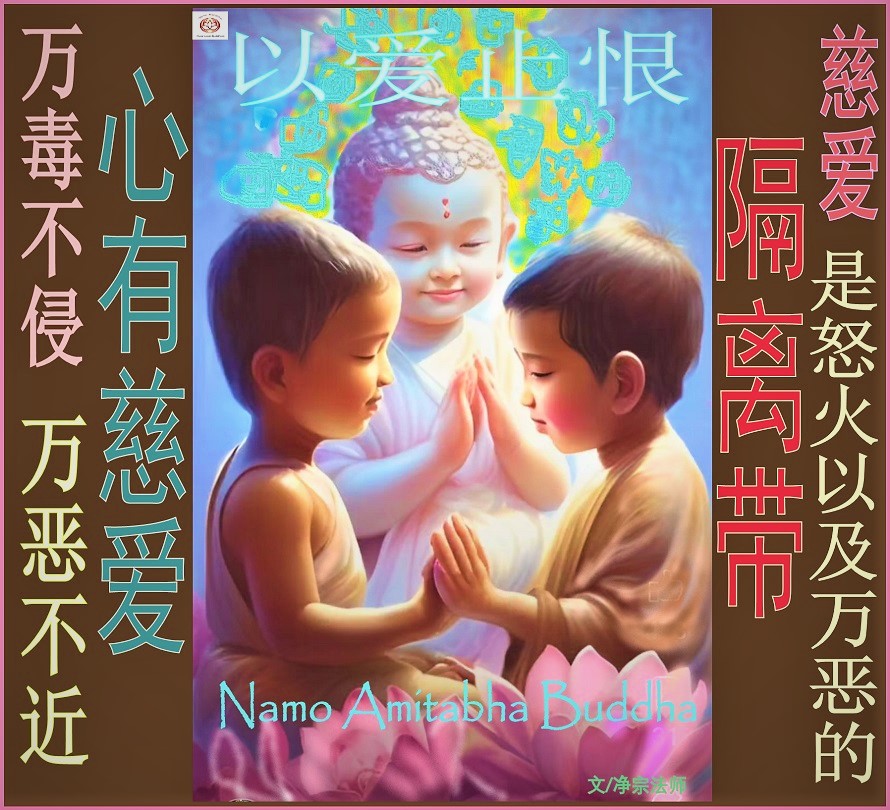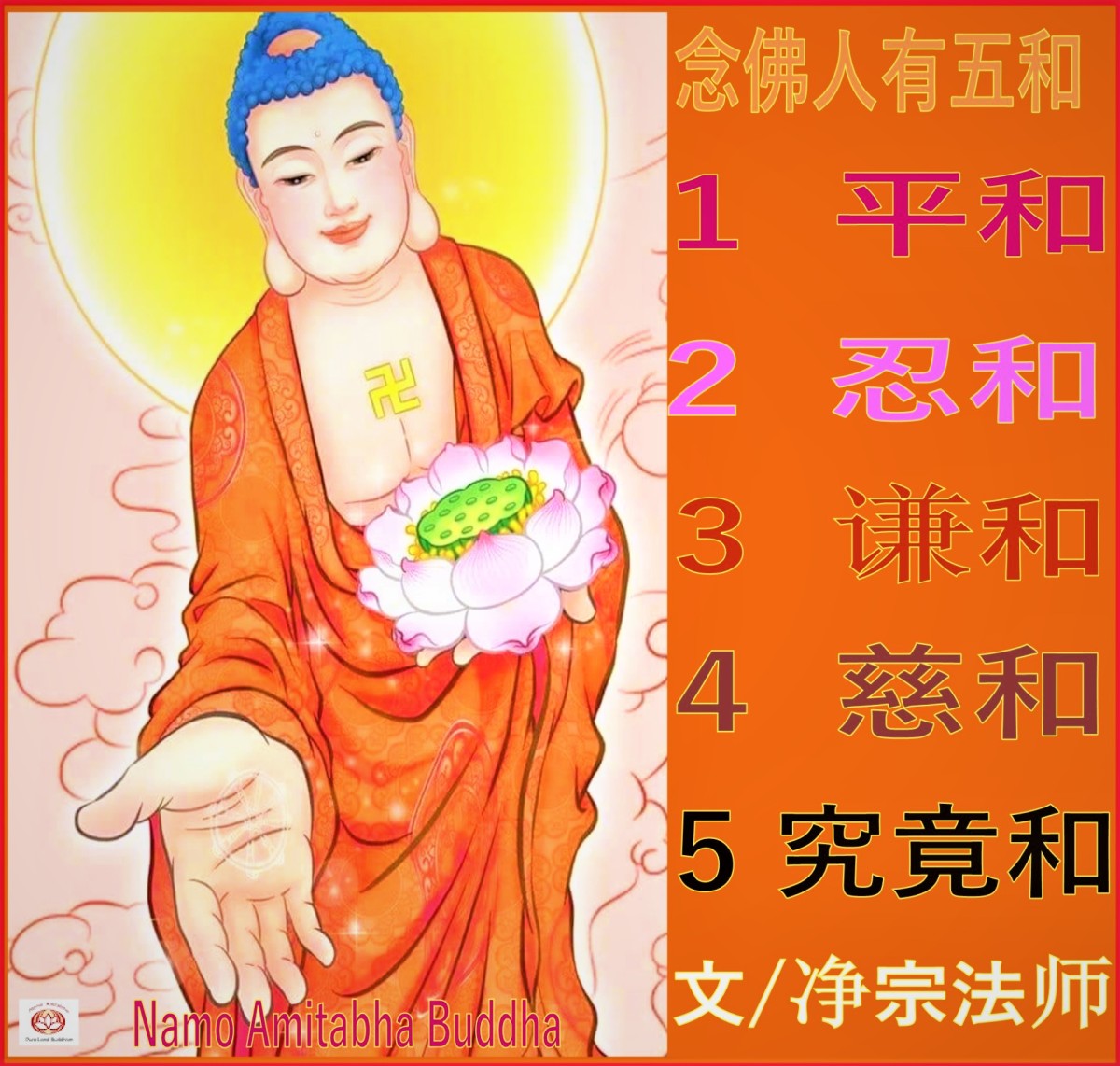1

All mundane men are down with greed, hatred, delusion, arrogance and doubts.
So, everyone will have his own afflictions, his attachment.
In this manner, there will be no way for him to thoroughly understand the other people, to forgive their faults, to care and take pity on them.
As such it is impossible for both parties to voice out their afflictions.
Even though husband and wife can be so loving, that the children are so filial, that there is the constant gathering, the mind is still lonely.
The Taiwanese has thus said,
‘Who can truly read my mind?’
Who will be so daring to pour out everything from his mind?
Where to find the ones who care for each other, who understand one another?
Husband and wife can be so loving, there is still a limit for them to voice out their sufferings, their afflictions, their secrets. Staying in solitude we are lonely. Even with the gathering of families and retinues, loneliness will still linger.
That is why the Buddha has told us,
‘Dwelling in the worldly realm of love and desire, we are born alone and we will die alone. We come alone and we leave alone.’-Dharma Master Shi Hui Jing
凡夫都有贪、瞋、痴、慢、疑,因此一定有各自的烦恼与执着,既然这样,就不可能彻底的体谅对方、包容对方、怜惜对方,彼此也就不敢倾诉心中的种种烦恼。
夫妻再怎麽恩爱,
儿女再怎麽孝顺,
再怎麽样的相聚一堂,
内心还是孤独。
台湾有句俗语说:「心事谁人知」,谁敢把内心全部掏出来跟人倾诉呢?又有谁能够互相理解而相互包容呢?所以再怎麽样恩爱的夫妻,也很难尽情的倾诉心中的苦闷、烦恼与秘密。一个人的时候固然孤独,家亲眷属相聚一堂,也还是孤独的,所以说「人在世间,爱欲之中,独生独死,独去独来」。慧净上人
When we are all alone, losing all hopes, when we are in pain, only then we realize Amitabha Buddha is always standing by our side, giving his care and concern. Only Amitabha Buddha is our best friend. That is why an Amitabha Buddha is never alone. If he can understand and experience this, it is the happiest happening in life. Most grateful to Namo Amitabha Buddha
当我们孤独失望时,痛苦时,才知道原来阿弥陀佛时时在我们的身边,陪伴我们。只有阿弥陀佛才是我们的知己。所以说念佛人从不孤独,了解,体会这一点,是一生中最快乐的事。感恩南无阿弥陀佛
2

That is why it is said, ‘When the light is on, darkness will leave. In the brightness, there is no darkness. It happens instantly. Brightness does not take a few days, a few years, a few lifetimes, a few Kalpas to achieve. In an instant, when the light is on, darkness is gone. Maybe the darkness has been dwelling there for a hundred years, a thousand years or even ten thousand years. In the Commentary on the Shastra of Attaining a Rebirth, the end of the first section, Great Master Tan Luan has thus described, ‘For instance, the room has been dark for a thousand years. But when the lights enter, it becomes bright. How can the darkness say that it has been there for a thousand years and it refuses to leave! -by Dharma Master Shi Hui Jing
所以说,
明来暗去,暗去明来。是当下当时,
不必经过几日、几年、几世、几劫,
是一刹那,光明一现,黑暗就消除,
不论黑暗已经盘据了百年、千年、万年。 昙鸾大师在《往生论注》上卷最末,形容说:
譬如千岁闇室,光若暂至,即便明朗;
闇岂得言,在室千岁,而不去耶!—–慧净上人
A comment by oridharma:
Every recitation of Namo Amitabha Buddha is the Immeasurable Lights, Immeasurable Lifespan, the merits to attain a rebirth. Our mind is originally full of false thoughts and dwells in darkness. Now because of the Buddha’s lights, it is getting brighter and brighter. Most grateful to Namo Amitabha Buddha
我们念的每一声南无阿弥陀佛都是无量光, 无量寿,都是往生的资粮。我们本来乱想,黑暗的心因为有佛光照耀,就越来越亮。感恩南无阿弥陀佛
3

For an Amitabha reciter his conduct is in accord with his mind – by Dharma Master Shi Hui Jing
念佛人,有其心,必有其行
文 / 慧净法师
As the saying goes, ‘We will surely conduct ourselves in accord with our thoughts.’ Whatever that is in our mind will surely, naturally be revealed in our speech and conduct. In the same way, a man who wholeheartedly has faith in Amitabha Buddha, who relies totally on Amitabha Buddha, who vows to attain a rebirth in the World of Ultimate Bliss will be less affected by the worldly issues in the Saha world. He is not so attached to them. For him, the attainment of a rebirth is more important. In fact, he takes it very seriously. Indeed, we can say his living, his aim in life is directed towards the attainment of a rebirth in the World of Ultimate Bliss.
俗话说“有其心,必有其行”,内心存着什么样的心,外表自然就会显现出怎么样的言行来。
同样的,一个对阿弥陀佛百分之百信顺、依靠,愿生极乐世界的人,自然也会对娑婆世界的事情看得比较淡,甚至于很不执著,而对往生极乐世界这件事,则看得比较重,非常的重,甚至于百分之百的重,可以说他的一切生活、作为的目的,都是为了往生极乐世界。
So, an Amitabha reciter who has faith in the rescue of Amitabha Buddha, who wishes to be born in the World of Ultimate Bliss will not much be affected by his false thoughts and delusive mind. He will take the Buddha’s Name seriously. Because of this kind of thinking, wherever he may be, at whatever time, he will recite Namo Amitabha Buddha with his mouth, ‘Namo Amitabha Buddha, Namo Amitabha Buddha…’ Maybe he does not recite out loud, his mouth will be reciting silently, wherever he may be, doing the job, at the Great Buddha Hall, in the shower room, in the toilet, in the room. This will surely be the case.
This is known as the serious mind, the respectful mind. It is also known as the mind of attachment, the mind of upholding the Buddha’s Name firmly, unmoving, neither dispersed nor lost.
An extract from the Teaching on the Chapter of the Easy Practice.
所以,
一个信受阿弥陀佛救度,愿生极乐世界的人,
必定是对自己的妄想杂念看得非常的淡然,
而对念这句弥陀名号看得非常的重要,因为他有这个心,所以自然地时时刻刻、在在处处,都会口中称念“南无阿弥陀佛,南无阿弥陀佛……”;即使没有声音,他也会时刻地动动嘴巴,不管在任何地方,或是做任何事情,佛堂大殿也好,浴室洗手间也好,或者是房间也好,都会这个样子。
这个就是殷切心、恭敬心,又叫作执持心,坚牢不移、不散不失。
——摘自《易行品讲要》
A comment by oridharma:
Amitabha reciters will think of Namo Amitabha Buddha all the time. They are all prepared to attain a rebirth. People who do not recite Namo Amitabha Buddha only dwells in the confusion of self and other, rights and wrongs. They lead a life of suffering. At the death bed, they undergo more sufferings. Most grateful to Namo Amitabha Buddha
天天念佛的行者,时时想到的是南无阿弥陀佛。时时准备往生。不念佛的人,时时都在人我是非中乱想中,活得很苦,死时更苦。感恩南无阿弥陀佛
4

The appreciation of Love
爱的体悟
The learners of this Dharma Door should have this realization that is : the love we possess is proportionate to our appreciation of Amitabha Buddha’s love for us. T
he more profound we can feel the love, kindness and compassion of Amitabha Buddha in rescuing us, the love we have for others will naturally be enhanced.
This phenomenon is very normal, very natural, very logical. -by Dharma Master Shi Hui Jing
学我们这个法门的人,更加要有这种体悟,就是说我们的爱心有多少,就表示我们体会阿弥陀佛的爱心有多少;
我们对阿弥陀佛
救度我们的慈悲爱心
体会愈深,
自然对其他的人的爱心
就会愈深,
这是一种很正常、很自然的逻辑现象 。
——慧净法师
A comment by oridharma
If we can really realize how Amitabha Buddha loves me like his only son, our heart will greatly be touched and filled with gratefulness. Ultimately, in the human realm, where to find someone who really care for us? Most people love themselves more than others. An Amitabha reciter realize the Great Love of Amitabha Buddha and he will naturally care for others, not renouncing others, wishing that all living beings will attain serenity bliss. Most grateful to Namo Amitabha Buddha
弥陀爱我如一子,能亲自体会到,心中充满感激,感恩。毕竟,在人世间,有谁真正爱我们,都是爱自己多,爱别人少,念佛人体悟到弥陀大爱,自然能更关爱一切众生,不舍众生,愿一切众生都安乐。感恩南无阿弥陀佛
5
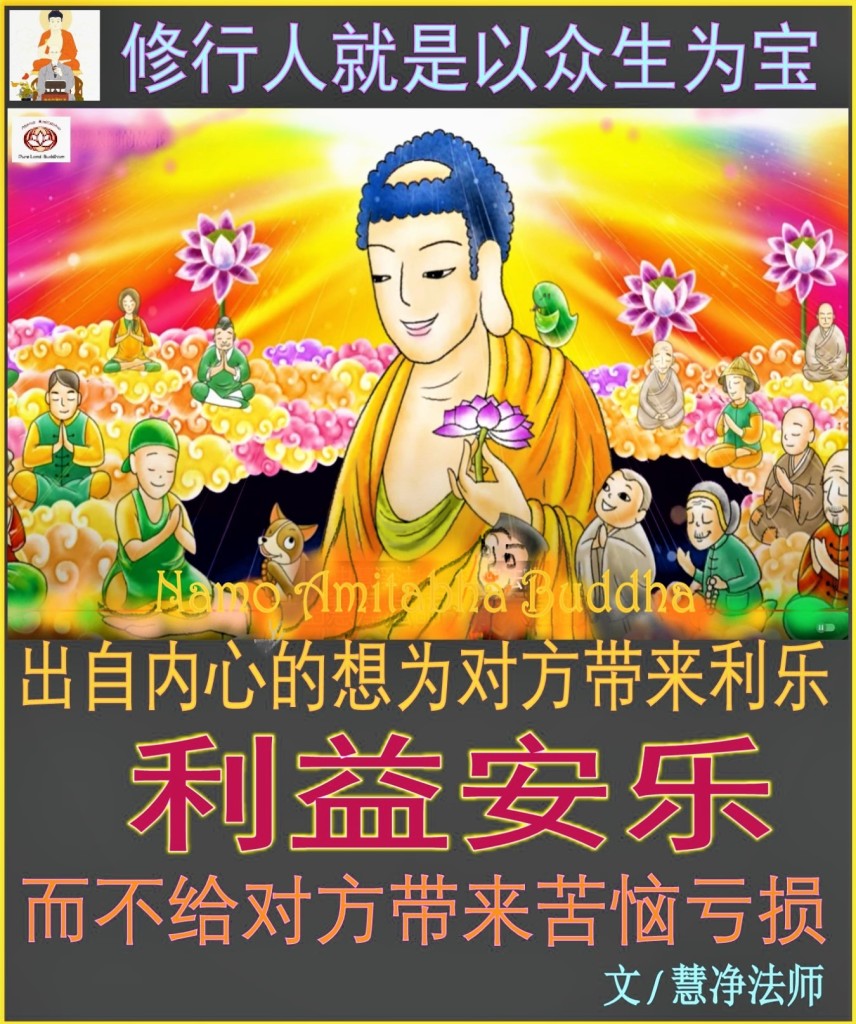
A cultivator treats all living as the jewels.
From his heart, he sincerely wishes that he can benefit others, can bring calm and bliss to them.
He will not bring them sufferings, afflictions or any loss.
If he does possess some benefits or accomplishment, he will give them away silently to the other party, without being asked. If others are at faults, at a loss or are afflicted, he will take them upon himself quietly, taking over the responsibility.
It means that ‘All the failures belong to oneself.
All the successes belong to others.
All the blessings will go to others while all the misfortunes belong to oneself.’
A man who is able to conduct in this manner is called a practitioner. by Dharma Master Shi Hui Jing
修行人就是以众生为宝,
出自内心的想为对方带来利乐——
利益安乐,
而不给对方带来苦恼亏损。如果自己有好处有成就,都主动地默默地奉献给对方;对方如果有过失有亏损有苦恼,也主动地默默地去接受承当。也就是「失败归自己,成功给他人;好事向他,坏事向己」。能这样行持者就是修行人 。
——慧净法师
A comment by oridharma:
The World Honoured One says that every living being has the potential to become Buddha. Amitabha Buddha has brought the 48 Greatly Magnificent Vows to rescue all living beings. We as the Buddha’s disciples should learn to love and care for all living beings, uphold all living beings. We will not harm any living beings. By doing so, we are acting in accord with the Buddhas’ mind. Most grateful to Namo Amitabha Buddha
世尊说每一个众生都是未来佛,阿弥陀佛也为救度一切众生而发广大的48大愿。我们作为佛弟子的也应该学习爱护一切众生,护持一切众生,不恼害众生,这样则与佛心相应。感恩南无阿弥陀佛
6

We should learn not to talk about the rights and wrongs of others. And we will not lament. It is very easy to commit offences with our mouth. And it is very easy to diminish our blessings, to increase our sinful obstacles. As we are the practitioners, we should take the Buddha Dharma as the standard of measure confronting the arising of thoughts. We should not enter the Buddha Door bringing along all our bad temper, bad character which have fully engulfed us before learning the Dharma.
我们要不说是非,
也不要诉苦,
因为口业最容易犯罪犯过,
也最容易消损自己的福报、
增加自己的罪障。
我们既是身为修行人,应该以佛法作为自己起心动念的准则,而不应该还像没有学佛以前一样,把以前的脾气、个性带到佛门来。
A Comment:
The World Honoured One said, ‘The Sages talk about the Dharma. The Sages maintain silence.’ Other than teaching the Dharma, the Sages keep the golden silence and dwell in stillness. We are not sages. We mundane men cannot teach the Dharma. We only recite Namo Amitabha Buddha. Other than Amitabha recitation, we will speak no more. Most grateful to Namo Amitabha Buddha.
世尊说,‘圣说法,圣默然。’除了说法,圣人就保持寂静。我们不是圣人,凡夫无法可说,就念南无阿弥陀佛。除了念佛不讲别的。感恩南无阿弥陀佛。
7

Confronting situations and conditions of adversities, we should face them with a mind of compassion. If we cannot take pity on them, at least we must not be angry. It is as said by Dharma Master Jing Song, ‘Under the control of our Karmic strength, no one is doing anything purposely. The Wise men take pity on the sentient beings while the mundane men start to point fingers at each other.’
We should learn to be a wise man. We should learn to treat all living beings with kindness and compassion. We will not scold the other party. -by Dharma Master Shi Hui Jing
对自己不利的境缘,我们都要以悲悯心来对待;不能生悲悯心,至少也不能生瞋恨心。就像净嵩法师所讲的:
「在业力的推动下,没有人是故意的;智者悲悯有情,凡夫互相谴责。」
我们要当一个学佛的智者,
以悲悯心来对待一切众生,
而不要去谴责对方。
——慧净法师
8

Maintaining still quietude By Dharma Master Shi Hui Jing
守 默 寂 靜
文/慧淨法師
The most important cultivation for a practitioner is his speech. That is, he should always maintain ‘silence’- the still quietude. Why is this so? It is because all the fights and arguments begin with words.
Our words are the sounds of our mind. When we are wronged by others, when we are hurt, when we are frustrated, we become emotional.
In fact, all we have to do is to reflect on our mind. We should know these are not others’ problems. We should thoroughly, a hundred percent very sure that we must take a good check on ourselves. This is surely our problem.
Once I have passed to you all two essays.
-1 To cure this mind, we should seek for wonderful enlightenment. 2 The refined conduct
All the left home disciples should study them carefully.
For instance, in ‘To cure this mind, we should seek for wonderful enlightenment’, it is thus described:
‘When we are enlightened, we look calm at ease, adorned and respectful. All the false thoughts and emotions are absorbed into the genuine mind.’
This is a very good teaching. I hope everyone should absorb these words into yourself, into your mind.
It is thus stated, ‘From the ancient time until now, all the Worthies and Sages are calm at ease, without any pretentions.’ The words calm at ease, staying calm without much fuss are very good words.
When we are always calm at ease, staying in still quietude, respectful and adorned, it shows that our mind is calm and stable.
Confronting all people and matters with a calm and stable mind, no contention, no argument, no fighting will arise.
Then we should also study the refined conduct in details. While we are walking, standing, sitting or lying down, while we are talking and practising, we should maintain calmness, dwelling in still quietude. Do not become so restless. This is the meaning of refined conduct. ‘Refined’ means very tiny and minute, in details. Of course, we cannot be so perfect as thus described, yet they are the topics which we must try to acquire.
The refined conduct and a refined mind are very intricate and detailed. Such a practitioner has arrived at a mind of silence. It is easier for him to understand the principles and meanings. Sakyamuni Buddha has attained the Enlightenment of the Genuine Truth of the Life and Universe and because of his attainment of still quietude on the Bodhi Seat.
In the passing of time, with all the causes and conditions and at the ripe time and hours, he looks up at the night sky and attains the Perfect Enlightenment.
The ‘refined conduct’ comes forth from a ‘refined mind’. It is very important that we pay attention to minor details. We should always try to maintain a silent mind which is calm at ease. So, in the morning, we should cultivate the good habits of sitting quietly to recite Namo Amitabha Buddha. Namo Amitabha Buddha
守 默 寂 靜 文/慧淨法師
一個修行人,最注重的就是言語,也就是儘量「守默」──守默寂靜。
為什麼?
因為通常會與他人有衝突對立,往往都是語言。
言為心聲,覺得委屈、受傷、挫折很深,因此情緒就出來了。
這些,其實都應該反觀自照,要曉得這不是別人的問題,百分之百要檢討自己,一定都是自己的問題。
我曾經發給大家兩篇資料:
〈治心須求妙悟〉〈細行〉,這兩篇出家眾一定要詳細的看。
譬如〈治心須求妙悟〉裏面有講:
「悟則神和氣靜,容敬色莊,妄想情慮,皆融為真心矣。」
這一句很好,儘量大家把文字的內容融會在心;
還說:「自古聖賢,都是心平氣和,無一毫造作。」
這心平氣和,心氣和平,這幾個字是非常好。
能夠時刻心氣和平,神和氣靜,容敬色莊,這樣顯示心始終是安詳的、穩重的;
任何人事都以這樣的心來面對,肯定不會彼此有對立、紛爭、衝突。
還有〈細行〉,大家也可以多看。
行、住、坐、臥,言語、行持都儘量要安詳、寂靜,不要躁動,這個就是「細行」。
「細」,是指微細方面的,當然我們無法做到所寫的那樣,但這一些都是我們所學習的項目。
細行、細心,細而又細,達到心很寧靜的話,就比較容易領悟道理。
釋迦牟尼佛之所以徹悟宇宙人生的真理,那是因為他在菩提座上寂靜
的經過一段期間,因緣時節一到,仰頭夜睹明星才大悟徹底。
「細行」來自於「細心」,
細心是很重要的,
必須平常保持一顆寧靜的心,
所以要培養晨起靜坐念佛。
南無阿彌陀佛!
